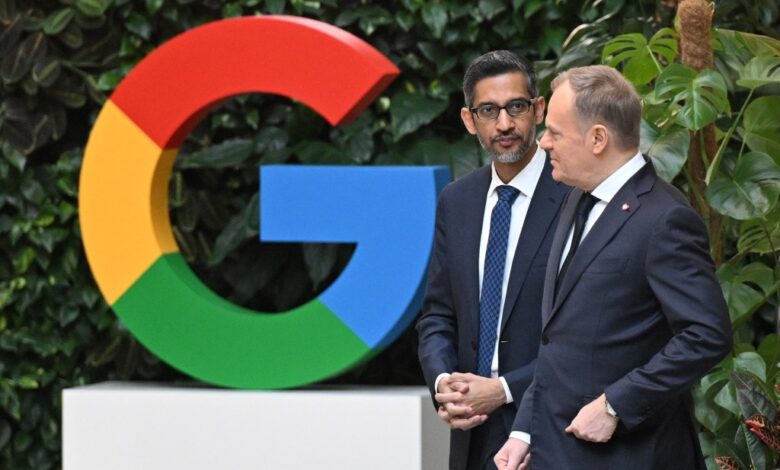Google faces EU charges of breaching DMA rules: report

Alphabet unit Google is set to be charged with breaching EU rules aimed at checking the power of Big Tech after proposed changes to its search results failed to address the EU antitrust regulator’s concerns and those of its rivals, three people with direct knowledge of the matter said.
The move by the European Commission comes amid tensions with President Trump who has sided with US tech giants lobbying against EU regulations and criticizing fines as a form of tariff. That has in turn triggered concerns that the EU watchdog may ease up on Big Tech.
The European Commission has been investigating Google for potential breaches of the Digital Markets Act since March last year.
One probe focuses on whether Google favors its vertical search engines such as Google Shopping, Google Flights and Google Hotels over rivals, and whether it discriminates against third-party services on Google search results.
The imminent charges concerned this issue, the people said.
The EU competition watchdog declined to comment. Google referred to a December blog post by its director, EMEA competition, Oliver Bethell, who said the company is working to find a balanced solution with the Commission.
Bethell said more changes in Google’s search result format to appease rivals could result in the removal of certain helpful features.
The tech giant has in recent months announced a series of changes to search result formats in a bid to address conflicting demands from price-comparison sites, hotels, airlines and small retailers. The majority of them have dismissed the proposals as not DMA-compliant.

EU antitrust regulators are also not happy with Google’s threat to bring back blue links in search results if it cannot resolve rivals’ demands, one of the sources said.
The DMA prohibits Google from favoring its own products and services on its platforms or face fines of as much as 10% of its global annual revenue.
The DMA charges are likely to be sent to Google following decisions in the coming months into separate investigations into Apple and Meta Platforms, which are more advanced, one of the sources said.
The other DMA investigation takes aim at potential limitations that hinder app developers from informing users about offers outside the Google App Store free of charge.




